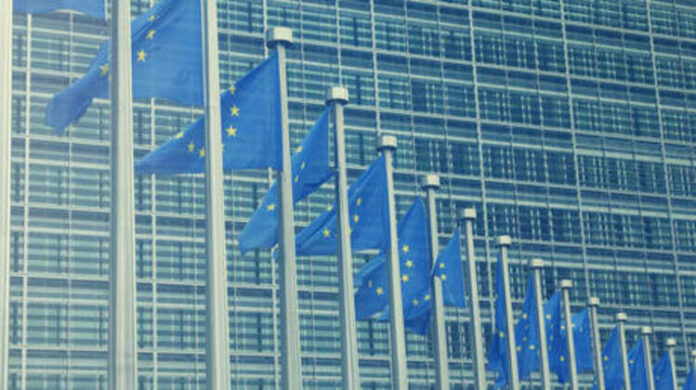The European Commission has recently issued a stern warning to its staff, alerting them to the growing threat of espionage in Brussels. Known as a central hub for intelligence activities, Brussels houses major international organizations, embassies, and EU institutions, making it a prime location for foreign spies looking to gather sensitive information. This new alert aims to make EU staff members aware of the potential risks surrounding them and to encourage them to take extra care in protecting confidential information.
The memo, shared internally on Thursday, warned officials that the espionage threat is “real” and that numerous intelligence officers are actively working in the city, seeking to access the EU’s confidential information. Officials were advised to be on high alert, as spies often disguise themselves as diplomats, journalists, scientists, or even students. The aim of these spies, as outlined in the memo, is to blend in and access inside information without arousing suspicion. According to Belgian security authorities, it is estimated that 10-20% of diplomats within certain embassies may, in fact, be intelligence officers.
Adding to the concern, officials pointed out that as many as one in five Chinese journalists in Brussels may actually be working as intelligence agents. This intelligence activity is not a new concern. In 2019, the EU’s diplomatic service had already issued a warning regarding suspected Russian and Chinese spies in the area. Staff were alerted to be cautious, as some of these spies reportedly loitered around the EU Commission’s headquarters to eavesdrop on sensitive conversations. The European Commission’s recent alert is another reminder of the necessity for vigilance in safeguarding sensitive EU information.
Espionage Tactics Used by Foreign Agents
The European Commission’s memo emphasizes that foreign intelligence agents in Brussels use a variety of tactics to achieve their goals. For example, many agents pose as friendly diplomats, lobbyists, journalists, or even researchers, roles that make it easier to approach EU officials without raising suspicion.
These operatives often try to strike up casual conversations, network with officials, or attend events to collect valuable information. They may take advantage of social gatherings or frequent popular spots around EU headquarters to increase their chances of overhearing or engaging in conversations that reveal confidential information.
Intelligence agencies from various countries are interested in learning more about the EU’s policies, plans, and discussions that could impact their own nations. This includes critical information about European security, trade, economic decisions, and defense strategies. Since the Russian invasion of Ukraine in early 2022, espionage efforts in Brussels have become more intense, particularly from Russian agents. In light of this, European intelligence services have been warning of heightened threats from Moscow, as the Kremlin is suspected of increasing its espionage efforts to understand and possibly counter the EU’s policies regarding the ongoing conflict.
Given the range of these espionage tactics, the memo stresses the importance of being alert in all types of interactions, even those that might seem casual or harmless. Foreign intelligence agents work hard to appear trustworthy, blending into environments where they have access to valuable information. The message from the European Commission to its staff is clear: be cautious, be aware, and do not underestimate the threat of espionage activities, which have been known to take on sophisticated and varied forms.
Potential Creation of an EU Intelligence Agency
To combat the rising espionage threat in Brussels and ensure the safety of EU institutions, European authorities are considering a proposal for a dedicated EU intelligence agency. This recommendation emerged from a comprehensive review of the EU’s preparedness for conflict and crises, highlighting the need for a stronger, more centralized response to espionage threats in Brussels. Such an agency would provide an organized and cohesive approach to counteract the influence and efforts of foreign spies.
Currently, the intelligence operations of each EU member state operate independently. A centralized EU intelligence agency would be able to coordinate efforts, improve communication, and respond more effectively to potential espionage activities targeting EU institutions and officials. This potential agency would focus on enhancing the security of EU institutions by identifying, monitoring, and countering threats from spies and saboteurs. It would aim to secure sensitive information and prevent intelligence leaks, which could otherwise harm EU policies, diplomatic relations, and defense strategies.
However, establishing such an agency would not be simple. For this proposal to move forward, member states would need to reach a consensus, as the creation of an EU-wide intelligence body raises questions of national sovereignty. Each member country has its own intelligence services, and not all may feel comfortable sharing sensitive information with a central EU body. Nonetheless, if agreed upon, an EU intelligence agency could significantly strengthen the EU’s overall defense against espionage, ensuring that Brussels—a city often targeted by foreign agents—remains as secure as possible.
The proposed agency aligns with the warnings from intelligence agencies across Europe and the United States, who have noted the increasingly aggressive tactics of Russian spies since the Ukraine invasion. As Brussels hosts a large concentration of international organizations and diplomatic missions, it remains a critical target for espionage. The European Commission’s recent memo underscores the importance of heightened awareness and security among its staff to prevent any potential breach of sensitive information.
In light of these developments, EU personnel are encouraged to be vigilant and cautious in their day-to-day interactions and to report any suspicious activity. With sophisticated tactics and determined efforts, espionage in Brussels poses a significant risk to the EU’s operations and information security. As authorities work on creating more robust security measures, the focus remains on ensuring that EU officials and staff understand the importance of protecting confidential information at all times.


